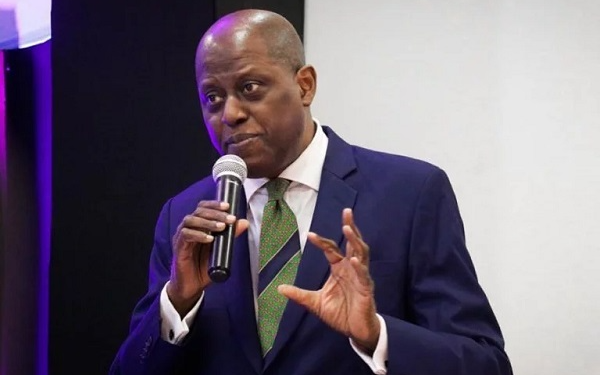The House of Representatives has called for Yemi Cardoso, the Governor of the Central Bank of Nigeria (CBN), and various stakeholders to appear before them regarding the recent decision to remove restrictions on 43 items from accessing foreign exchange.
The Central Bank of Nigeria had recently lifted the foreign exchange restrictions it placed on importers of 43 items eight years ago.
The lower chamber passed the resolution to summon the CBN governor during the plenary session on Tuesday following the adoption of a motion of Urgent Public Importance sponsored by Sada Soli, a Lawmaker from Katsina.
Introducing the motion, he emphasized that the Central Bank of Nigeria (CBN) had implemented restrictions in June 2015 with the aim of preserving foreign exchange reserves and fostering domestic production of approximately 11 food items.
Nevertheless, he pointed out that on October 12, 2023, the apex bank revealed, among other issues, the removal of Foreign Exchange restrictions that had previously affected the 43 items.
Soli further noted that some of the items have tariffs to protect local industries, as they are part of the import prohibition list.
The lawmaker said,
- “The decision of the CBN will greatly affect local production of items such as rice, cement, and palm oil among others, as it will force local manufacturers to hold the short end of the stick, invariably leading to factory closure and ultimately eroding our capacity to build the country’s local economy.
- “Almost all the 43 items are from two critical sectors which have been identified by all policy documents from NEEDS, SEEDS to Vision 2022 as being areas that are critical to economic diversification.
- “Some of the listed items enjoy 60%-70% subsidy from their countries of origin, thus putting Nigeria’s local products at a comparative disadvantage and without any protection and will lead to job losses and social exclusion.”
Backstory
Nairametrics reported that the Central Bank of Nigeria lifted the ban on 43 items imposed under the Godwin Emefiele CBN era.
This was disclosed in a circular by the apex bank released on October 12, 2023.
According to the central bank, it will also boost liquidity in the Nigerian Foreign Exchange Market and intervene from time to time, stating that interventions will decrease as liquidity improves.
Under the new guidelines, the CBN said it will be championing the ‘Willing Buyer – Willing Seller’ principle, emphasizing its commitment to a market-driven exchange rate system.






















The decision of the CBN will greatly affect local production, it’s very funny talking about local production in a country where there’s no electricity, good roads, waters and adequate transportation network. Nigeria leaders should stop entertaining themselves and her gullible citizens with grammars.
Let the Nigeria house of rep declares state of emergency on adequate electricity, federal roads and transportation network, however, allow Nigeria local producers to compete with imported items. In any case, let us see how imported item will be cheaper compared with the locally made.